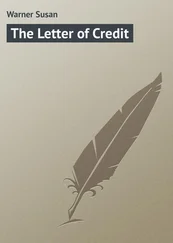Susan Warner - What She Could
Здесь есть возможность читать онлайн «Susan Warner - What She Could» — ознакомительный отрывок электронной книги совершенно бесплатно, а после прочтения отрывка купить полную версию. В некоторых случаях можно слушать аудио, скачать через торрент в формате fb2 и присутствует краткое содержание. ISBN: , Жанр: foreign_prose, foreign_children, на английском языке. Описание произведения, (предисловие) а так же отзывы посетителей доступны на портале библиотеки ЛибКат.
- Название:What She Could
- Автор:
- Жанр:
- Год:неизвестен
- ISBN:http://www.gutenberg.org/ebooks/30146
- Рейтинг книги:4 / 5. Голосов: 1
-
Избранное:Добавить в избранное
- Отзывы:
-
Ваша оценка:
- 80
- 1
- 2
- 3
- 4
- 5
What She Could: краткое содержание, описание и аннотация
Предлагаем к чтению аннотацию, описание, краткое содержание или предисловие (зависит от того, что написал сам автор книги «What She Could»). Если вы не нашли необходимую информацию о книге — напишите в комментариях, мы постараемся отыскать её.
What She Could — читать онлайн ознакомительный отрывок
Ниже представлен текст книги, разбитый по страницам. Система сохранения места последней прочитанной страницы, позволяет с удобством читать онлайн бесплатно книгу «What She Could», без необходимости каждый раз заново искать на чём Вы остановились. Поставьте закладку, и сможете в любой момент перейти на страницу, на которой закончили чтение.
Интервал:
Закладка:
"I think you can do it for yourself, Maria. I have no objection to your finishing it."
"I cannot put on that braid – in that quirlicue pattern, mamma; I never did such work as that; and I haven't time, besides."
"Nor inclination," said Letitia, laughing. "Come, Maria, it is time you learned to do something for yourself. Matilda, now, might plead inexperience, and have some reason; but you are quite old enough."
The dispute would have gone on, but Mrs. Englefield desired silence, and the family drew round the tea-table. Other plans for the following weeks filled every tongue. Mrs. Candy was well off; a widow with one child, her daughter Clarissa; she had been in Europe for several years; coming back now to her own country, she was bending her steps first of all to her sister's house and family.
"We shall have the new fashions, straight from Paris," Anne remarked.
"Has Aunt Candy been in Paris? I thought she was in Scotland, mamma?"
"People may go to Paris, if they have been in Scotland, Maria. It is not so far as around the world."
"But has she been in Paris?"
"Lately."
"Mamma, what is Aunt Candy going to do with herself when summer comes? She says, 'till summer.'"
"When she tells us, I shall know, Letty. At present I am as ignorant as you."
"Do you think she will buy a house here, and make her home here?"
"That depends on how well she likes Shadywalk, I imagine."
"I hope she will!"
"I would like to see, first, what she is," said Maria. "We shall have time enough for that, if they stay with us till summer. How old, mamma, is Clarissa Candy?"
"Over your age, Maria, by a year or so."
"Will she go to school with us, do you suppose, mamma?"
"I really cannot tell, Maria. I think it very likely."
"Is Aunt Candy very rich?"
"You talk like a foolish girl. Why do you want to know?"
"I was thinking whether Clarissa would be dressed a great deal better than we are."
"And what if she is?"
"Nothing. I was thinking. That's all."
"I don't think it signifies," said Matilda.
"Oh! Matilda has found her tongue! I was waiting to see when she would speak," cried Anne. "What don't signify, little one?"
"It don't signify, I think, whether any one is dressed better than another; anybody – Clarissa or anybody else."
"Well, you are mistaken then," said Anne; "for it does signify. All the world knows it; and what is more, all the world feels it."
"I don't think I do," said Matilda.
"Your time has not come."
" Your time had come, though, before you were as old as she," said her mother; "and Maria's and Letty's."
"I know Matilda is a wonderful child," said Anne, "but her time will come too, mamma; and she will find it makes a difference whether she is dressed one way or another."
"I think that now," observed Matilda.
"Anybody that has to fasten Tilly's dresses knows that," laughed Maria. "I don't make half so much fuss."
"I wish you did," said her mother. "You are not near careful enough in putting on your things. Now putting on is half the battle."
The argument lasted till Tilly and Maria went back to the consideration of South America, which was brought down-stairs to the lamp.
"You haven't got the Amazon right," said Matilda; "and Rio Janeiro is too far down; and it's all crooked – don't you see?"
"No!" said Maria; "and if it is, Ailie Swan needn't have said hers was better."
"You asked her."
"Well, if I did?"
"What could she say?"
"I don't care; it was awfully rude; and people ought to be polite, if they're ever so good."
"What is all that?" said Mrs. Englefield. "That is not Tilly's map?"
"Oh no, mamma; she can't draw maps; she is only setting up for a judge."
"She would do it as well as that, if she would try," said her mother. "I wish you would love your studies, Matilda. You could do so well if you pleased."
"Clarissa Candy will make you both ashamed," said Anne. "She has learned everything, and is terribly smart; 'going on to learn everything else,' her mother says."
"Mamma," said Maria, "I have only my green silk and my blue delaine for nice dresses; and the silk is old-fashioned, you know, and the delaine is too short; and I want my merino finished."
"Finish it, then."
Maria pouted.
"I cannot afford every indulgence to you, as your aunt can to Clarissa; you must make it up by your own industry."
"But can I, mamma?"
"Can you what?"
"If I am very smart, can you give me things, if I make them up, that I can be as well dressed as Clarissa Candy?"
"Let us see the merino made first," said her mother.
CHAPTER III
There was great interest now at Shadywalk, at least in one house, to know when the Liverpool steamer, City of Pride , would be in. Conjectures proving unsatisfactory and uncertain, the whole family took to studying the marine lists in the daily papers; and when everybody else had looked them over, the last one of the family did it again with extra care; lest by some singular coincidence the letters forming the City of Pride might have escaped the eyes so keen set to find them. The paper grew better than a novel. It furnished a great deal of matter for conversation, besides; for all the steamers which had got in were talked over, with their dates of sailing, and number of days on the passage; with each of which the times, certain and probable, of the City of Pride were compared. Then there was the question, whether Aunt Candy might have changed her mind at the last minute, and waited for another steamer; and the reports of the weather lately experienced at sea were anxiously read and put alongside of the weather lately experienced at Shadywalk.
Preparations in the house went on diligently; whatever might help it to make a better impression, or afford greater comfort to the expected guests, was carefully done. Mrs. Englefield even talked of getting a new stair-carpet, but contented herself with having the old one taken up and put down again, the stairs washed, and the stair-rods brightened; the spare room, the large corner chamber looking to the north and west, was scrupulously swept and dusted; furniture rubbed; little white knitted mats laid on the dressing-table; the chintz curtains taken down and put up again; a new nice chamber set of white china was bought, for the pitcher of the old set had an ugly nick in it and looked shabby; the towel rack was filled with white napery; the handsomest Marseilles quilt was spread on the bed; the stove was blackened and polished. It looked "very respectable," Anne said, when all was done.
What private preparations went on, besides, on the part of the girls, it would be hard to say. Maria worked hard at her braiding – that was open to anybody's observation; but there were less obvious flutings and ironings down in the kitchen, and adjusting of ribbons and flowers in secret consultations up-stairs. And one piece of care was made public by Maria, who announced that Letty had trimmed her old bonnet three times over before she would be suited.
"Very well," said Letty, contentedly. "I should like to know who would wear an old thing when he could have a new; and mine is like new now."
"Things can't be new always," said Matilda.
"What then?" her sisters asked, laughing.
"Then it must be respectable for them to be old, sometimes."
"Respectable! Not very pleasant, when they are to be set alongside of things as new and nice as they can be. I like to be as good as anybody, for my part."
"Mamma," said Matilda, "do you know there is a great hole in the door mat?"
"It is worn out a great deal too soon," said Mrs. Englefield; "I shall tell Mr. Hard that his goods do not last; to be sure, you children do kick it to pieces with the snow."
Читать дальшеИнтервал:
Закладка:
Похожие книги на «What She Could»
Представляем Вашему вниманию похожие книги на «What She Could» списком для выбора. Мы отобрали схожую по названию и смыслу литературу в надежде предоставить читателям больше вариантов отыскать новые, интересные, ещё непрочитанные произведения.
Обсуждение, отзывы о книге «What She Could» и просто собственные мнения читателей. Оставьте ваши комментарии, напишите, что Вы думаете о произведении, его смысле или главных героях. Укажите что конкретно понравилось, а что нет, и почему Вы так считаете.












